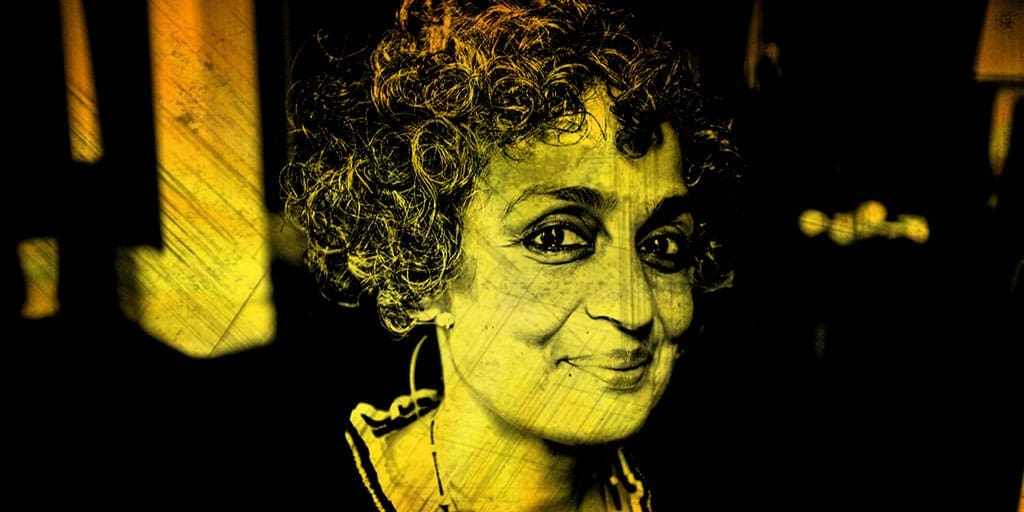Arundhati Roy: Fierce Advocate for Justice
Literary Luminary and Voice for the Voiceless
Arundhati Roy stands as a towering figure in contemporary literature and activism, weaving stories and arguments that resonate far beyond the borders of her homeland. From her breath-taking debut novel, The God of Small Things, which earned her international acclaim and the Booker Prize in 1997, to her fearless essays critiquing political oppression and environmental destruction, Roy’s work embodies the intersection of art and advocacy.
Her life, shaped by a confluence of diverse cultural influences and personal convictions, mirrors the rich complexity of her writing. This article delves into the multifaceted world of Arundhati Roy, exploring her early life, personal journey, literary achievements and unwavering commitment to social justice. In examining her views on pressing global issues, we uncover a legacy that continues to challenge, inspire and provoke thought in a world hungry for voices of integrity and courage.

"Arundhati Roy writes with a dazzling brilliance that makes even the most complex issues accessible and deeply moving."
Salman Rushdie
Table of Contents
*All Book Images Open a New tab to our Bookshop
**If you buy books linked to our site, we get 10% commission from Bookshop.org, whose fees support independent bookshops.
Early Life and Education
Arundhati Roy, born on November 24, 1961, in Shillong, India, grew up in a culturally diverse and intellectually stimulating environment. Her mother, Mary Roy, was a prominent social activist who won a landmark case ensuring equal inheritance rights for Syrian Christian women. Her father, Rajib Roy, was a Bengali tea planter. This eclectic mix of cultures and values shaped Arundhati’s worldview from a young age, instilling in her a sensitivity to issues of justice and equality.
Roy spent her formative years in Kerala, where her mother’s influence loomed large. Mary Roy ran a progressive school, emphasizing critical thinking and creative expression. Arundhati’s exposure to literature, art, and social justice issues during her childhood laid the foundation for her future career. Later, she moved to Delhi to study architecture at the Delhi School of Architecture. It was here that she met her first husband, Gerard DaCunha, although their marriage was short-lived. Architecture, though not her ultimate career path, honed her skills in structure and form, traits that would become evident in her literary works and activism. During this period, Roy began to develop a keen interest in the aesthetics of storytelling, often drawing parallels between the intricacies of design and narrative construction.

Personal Life and Relationships
Arundhati Roy’s personal life has often been intertwined with her creative pursuits. After her marriage to DaCunha ended, she met and married filmmaker Pradip Krishen, who introduced her to the world of cinema. This relationship not only broadened her artistic horizons but also deepened her understanding of visual storytelling. Together, they collaborated on several projects, including scripts and short films, which further enriched her creative repertoire.
Though their relationship evolved over time, they maintained a strong creative partnership. Roy’s personal experiences and relationships have significantly influenced her writing, imbuing her works with a deep understanding of human complexities and emotions. Her ability to weave personal narratives with broader social commentary has become a hallmark of her style.
Despite her fame, Roy remains a deeply private individual, choosing to channel her thoughts and feelings into her art and activism rather than public appearances. She splits her time between Delhi and her ancestral home in Kerala, where she continues to write and engage with local communities. Her life reflects a delicate balance between solitude and engagement, allowing her the space to craft her works while remaining connected to the struggles of those she writes about.

The Rise of a Literary Icon
Arundhati Roy’s literary career skyrocketed with the publication of The God of Small Things in 1997. This semi-autobiographical novel, set in the lush backwaters of Kerala, delves into the intricacies of family dynamics, caste discrimination, and forbidden love. Written in a lyrical and non-linear style, the book captivated readers and critics alike, earning her the Booker Prize for Fiction that year. Roy became the first Indian woman to win this prestigious award, catapulting her into the global literary spotlight.
The novel’s narrative structure, with its seamless transitions between past and present, demonstrated Roy’s mastery of storytelling. Her vivid descriptions of Kerala’s landscapes and her unflinching exploration of societal taboos resonated with readers worldwide. However, the success of The God of Small Things was not without controversy. Some critics questioned the book’s explicit content and portrayal of sensitive social issues. Yet, Roy’s fearless approach to storytelling set her apart as an author willing to challenge conventions and address uncomfortable truths, making her an enduring figure in contemporary literature.
Transition to Activism and Non-Fiction
After the success of her debut novel, Arundhati Roy shifted her focus to activism and non-fiction writing. She became a vocal critic of globalization, environmental degradation, and human rights violations, using her platform to amplify marginalized voices. Her first major non-fiction work, The Algebra of Infinite Justice (2002), is a collection of essays that critique U.S. foreign policy, corporate greed, and India’s nuclear ambitions. This marked the beginning of her transformation into a global activist and intellectual.
Roy has since authored numerous essays and books on topics ranging from the displacement caused by large dams to the plight of indigenous communities in India. Works such as Field Notes on Democracy and Capitalism: A Ghost Story showcase her incisive analysis and unwavering commitment to social justice. Her writing often blends personal anecdotes with rigorous research, making complex issues accessible to a broader audience. In her essays, Roy frequently challenges the narratives of power, exposing the mechanisms of exploitation and control that underpin modern systems of governance and economy.
Her activism has also extended to issues such as nuclear disarmament and climate justice. Roy’s eloquence and depth of understanding have made her a sought-after speaker at international forums, where she continues to advocate for equitable and sustainable solutions to global crises.

Advocacy and Social Justice
Arundhati Roy’s advocacy extends beyond the written word. She has actively participated in movements against environmental destruction, such as the Narmada Bachao Andolan, which opposes the construction of large dams on the Narmada River. Roy’s vocal support for this cause led to her imprisonment in 2002 for contempt of court, an experience she recounted with characteristic wit and resilience. This episode highlighted her willingness to face personal consequences for standing by her principles.
Roy is also a staunch critic of militarization and state-sponsored violence. She has spoken out against the Indian government’s treatment of Kashmir and the oppression of tribal communities in central India. Her activism often places her at odds with powerful entities, earning her both admiration and criticism. Despite the backlash, Roy remains steadfast in her mission to advocate for the voiceless. Her involvement in grassroots movements and her consistent support for marginalized communities underscore her belief in the power of collective action.
In addition to her environmental advocacy, Arundhati Roy has addressed issues of gender and identity. She has been a vocal supporter of LGBTQ+ rights and has highlighted the intersections of caste, class, and gender in perpetuating systemic inequalities. Her nuanced understanding of these dynamics has enriched public discourse, encouraging more inclusive approaches to activism and policy-making.
"She is a writer of extraordinary courage, unafraid to speak truth to power."
Noam Chomsky
Return to Fiction
In 2017, two decades after her debut, Roy published her second novel, The Ministry of Utmost Happiness. This ambitious work spans decades and continents, weaving together the lives of diverse characters to paint a poignant portrait of modern India. The novel tackles themes of gender identity, political resistance, and the enduring impact of violence, cementing Roy’s reputation as a master storyteller.
The novel’s sprawling narrative and intricate character arcs reflect Roy’s growth as a writer. While The Ministry of Utmost Happiness received mixed reviews, it was widely praised for its bold narrative structure and unflinching exploration of social and political issues. Roy’s ability to blend fiction and activism underscores her unique position in the literary world as both a writer and a changemaker. The book’s exploration of marginalized identities and its critique of systemic injustices further solidify Roy’s commitment to using literature as a tool for social change.

Awards and Recognition
Arundhati Roy’s contributions to literature and activism have earned her numerous accolades. In addition to the Booker Prize, she has received the Sydney Peace Prize, the Norman Mailer Prize for Distinguished Writing, and the Amnesty International Global Ambassador of Conscience Award. These honours reflect her impact not only as a writer but also as a global advocate for justice and equality.
Roy’s work continues to inspire readers and activists worldwide. Her fearless pursuit of truth, combined with her literary prowess, has made her a beacon of hope for those fighting against oppression and inequality. Her speeches and writings are frequently cited in academic and activist circles, demonstrating the enduring relevance of her ideas.
Views on Social and Political Issues
Arundhati Roy’s outspoken views on social and political issues have often made headlines. She is a fierce critic of capitalism, which she sees as a system that perpetuates inequality and environmental destruction. Her essays frequently highlight the adverse effects of neoliberal policies on India’s poor and marginalized communities, drawing attention to the growing disparities between the rich and the poor.
Roy is equally critical of nationalism and religious fundamentalism. She has condemned the rise of Hindu nationalism in India, warning against its divisive impact on the country’s secular fabric. Her advocacy for Kashmir’s right to self-determination has sparked significant controversy, with some accusing her of being unpatriotic. Roy, however, remains unapologetic, emphasizing the importance of questioning authority and defending human rights.
On a global scale, Arundhati Roy has spoken out against imperialism and military interventions. She has criticized U.S. foreign policy, particularly its wars in the Middle East, and has called for greater accountability from international organizations and corporations. Her incisive critiques of global power structures highlight the interconnectedness of local and international struggles, urging readers to adopt a more holistic view of justice.
"Arundhati Roy’s voice is a beacon of hope in a world that desperately needs compassion and justice.”
Naomi Klein
Legacy and Influence
Arundhati Roy’s legacy extends far beyond her literary achievements. As a writer, she has redefined the boundaries of fiction, using her art to shed light on pressing social issues. As an activist, she has inspired countless individuals to question the status quo and fight for justice. Her ability to articulate complex ideas with clarity and passion has made her a transformative figure in both literature and activism.

Arundhati Roy’s work has influenced a new generation of writers and thinkers, particularly in India, where her courage and conviction have set a powerful example. Her ability to seamlessly merge storytelling with activism underscores the transformative power of literature in effecting social change. Her impact is felt not only through her books but also through her speeches, interviews, and collaborations with activists worldwide.
*Visit and Follow to Arundhati Roy on Facebook




























Leave a Comment